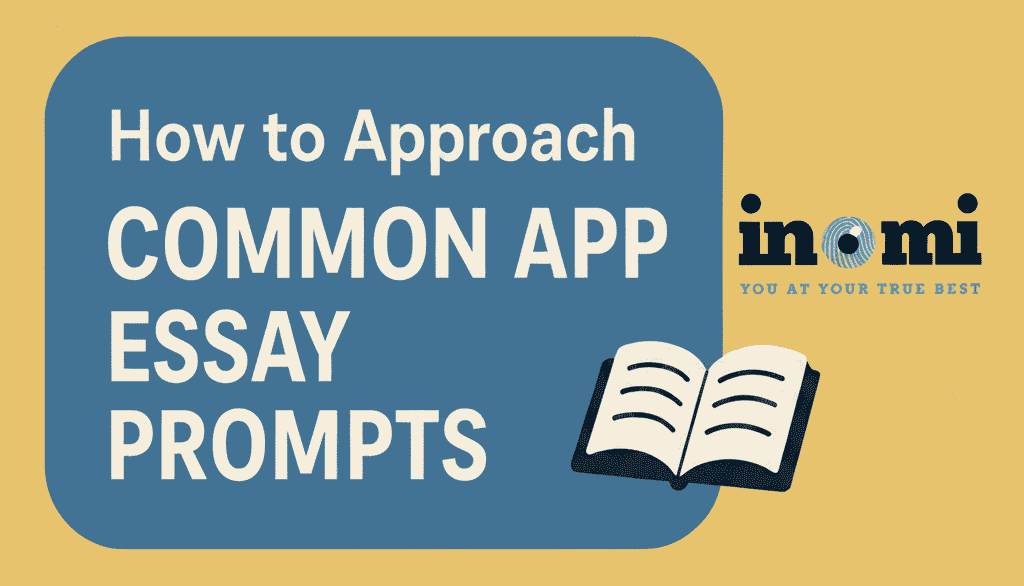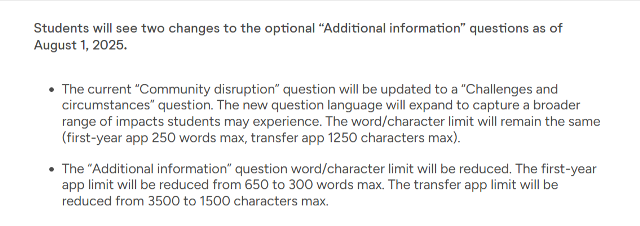
It’s again that time of the year when, for a high school senior’s world it means just one thing: the Common App has opened! When it comes to U.S. college applications, the Common App personal essay is often the most intimidating part for students. Unlike grades, test scores, or extracurriculars, this essay is your chance to speak directly to admissions officers in your own voice. In this article, we will discuss how to approach the Common App Essay prompts 2025 – 2026.
Common App Essay
The Common App essay is one of the most important elements of a student’s application for the US. This 650-word essay intends to provide a glimpse into the personality of the student that goes beyond the transcripts and activities list. It helps the officer who is reading to personify something that is just an admissions file until that point. Hence, writing a common app essay should be a deliberate process to create an authentic and compelling voice of the student. This article will give you some key points to consider while you’re crafting your essay.
Choosing the Right Common App Essay Prompt
Choosing the right essay prompt is one of the most important steps. As an applicant, you should choose the one that resonates the most with them. It should reveal your goals, character, and values. Your essay should clearly respond to your prompt, but it’s okay if the connection is subtle.
More important is that it is coherent, well-written, and vivid. This is about who you are, not just what you’ve done: so focus on your thoughts, emotions, and growth, not just events and/or achievements.
What to do while Writing a Common App Essay
The language should be descriptive, with specific details, anecdotes, and imagery that bring your story to life. Universities and colleges want to know your journey of personal growth, and essays are the best place to demonstrate that. The best common app essays are those that have a clear focus and a singular theme.
What to Avoid while Writing a Common App Essay
This is not a place to list your achievements; rather, a deep reflection that makes an emotional impact is the right approach. Your essay should be composed well, but carry your natural and genuine expression. The goal of this essay is to present your true personality memorably, not to portray perfection.
How to Approach the Common App Essay Prompts
Common App Essay Prompt 1: Background, Identity, Interest, or Talent
Approach: Don’t make this a bio. Choose one thread of your life—a moment, a tradition, or a passion—that speaks to something greater about you. Ground the essay in a particular anecdote, then pull out to reveal how it fits into your identity.
Unique Hook: Rather than mere “I’m Indian” or “I play violin,” describe how, following your grandmother’s recipes on Sundays each week, you learned patience, or the way rehearsals for violin made you listen before you led.
Common App Essay Prompt 2: Lessons from Obstacles
Strategy: Admissions officers don’t care about your tragedy—they care about your growth. The stumbling block is only the setting; the true essay is of the mindset transformation. Begin with the grimy, unedited reality, then allow the essay to evolve into self-discovery.
Unique angle: Instead of saying “I failed my math test, then tried harder,” explain how failing made you curious about why you were shying away from math, resulting in tactics you use now in other aspects of life.
Common App Essay Prompt 3: Questioning or Challenging a Belief
Strategy: This prompt isn’t necessarily about being radical; it’s about being bold and independent-minded. Choose a small, intimate moment over a grand political position. What’s most important is that you engaged critical thought.
Unique angle: Perhaps you defied your family’s thinking that “art is just a hobby” when you pursued design in earnest, or you spoke up to your sports coach’s game plan and learned respect can be paired with self-advocacy.
Related Article: Essays vs SoPs
New Changes in the Common App for 2026 Entry

Common App Essay Prompt 4: Gratitude
Strategy: Keep the essay about you, not the individual you’re thankful for. Begin by creating a clear picture of the surprise moment, then discuss how it changed your outlook or future decisions.
Unique angle: Describe the friend who quietly held a seat for you each day in the cafeteria—then consider how that instructed you to take care of others in unseen ways.
Common App Essay Prompt 5: Achievement, Event, or Insight
Approach: The “event” does not necessarily have to be monumental. Small, incremental turning points tend to create the most compelling essays. Consider times when your perception of yourself shifted—that’s the true “growing.”
Unique Hook: Perhaps the achievement is not receiving a medal but learning how to prepare a meal for loved ones. The insight? The leadership could be in the form of service, and not always being in the spotlight.
Common App Essay Prompt 6: Topic, Idea, or Concept You Find Interesting
Strategy: Let your curiosity be seen. Don’t say “I love physics” or “I get lost in painting”—show us a time when you became so lost you lost track of time. Then bridge that curiosity to the type of learner you are.
Unique angle: Perhaps you’re addicted to the design of subway maps and spend hours rewriting them. Or you just can’t stop asking yourself “what if” after reading every sci-fi novel. Demonstrate how curiosity bleeds into daily life.
Common App Essay Prompt 7: Topic of Your Choice
Strategy: Employ this when you have a narrative that doesn’t quite fit anywhere else. The trick is to keep it concentrated: even the most offbeat subject should yield a larger point about your character.
Unique spin: Perhaps you blog about your passion for restoring vintage timepieces—not for the machinery, but for the lessons it gave you in patience and appreciation for details.
How to Write a Winning Common App Essay
Now, let’s talk about a winning essay – how does one construct an essay that leaves a lasting impression on the admissions officer? Most important is the choice of the story, as it will be the cornerstone of your essay.
You should choose a story that only they can tell: pick a moment, experience, or challenge that reveals something unique about you. Even everyday experiences (like family dinners or personal hobbies) can be powerful if they show depth and insight.
The opening of your essay should grab attention – what does this mean? An impressive scene, a thought-provoking question, or an unexpected statement can quickly draw the reader in. Colleges value self-awareness, so make sure to highlight what you learned, how you grew, or how the experience shaped your perspective.
Show that you can reflect meaningfully on your experiences and connect them to larger ideas. Another important characteristic of a remarkable essay is that it lets your personality and tone come through. Revised drafts help make the essays clear, concise, and impactful.
As the saying goes, too many cooks spoil the broth, so get feedback from only one or two trusted mentors and let yourself shine. If the context of the essay allows it, tie everything back to the big picture and connect it to your future goals, interests, and values.
Recommended Article: How to Write a Perfect UCAS Personal Statement
Common Mistakes to Avoid while Writing the Common App Essay
If there is the right strategy, there is a wrong one too! These are some common mistakes that students can try to avoid while writing the common app essay: overused topics (e.g., winning the big game, missing out on the highest scores) without personal depth, focusing too much on others (e.g., a family member or role model) instead of you, repeating your resume or activities list, using unnecessarily formal, rigid language, and above all, avoid cliches, generic statements, or trying to write what you think admissions officers want to hear.
Acknowledgement: This article has been co-authored by Eeva Pachhapur. Eeva started her career in Retail Banking with U.S. Bank in Minneapolis. She has experience covering business analysis, operational supervision, and management.
Eeva has a passion for education and IB philosophy and has been guiding and mentoring parents and students in their educational and college counselling journey across STEM areas for the US and for their school journey. As a trained IB facilitator and a long-term parent representative, Eeva is deeply immersed in the parent and school experience as well.
Eeva holds a BS degree (International Business and Economics) from St. Catherine University, Minneapolis, USA, and has also completed Certificate Level Courses in IB Education, George Mason University, Fairfax, USA.
Tanmoy Ray is an experienced admissions consultant and content marketer with a passion for helping students achieve their global education dreams. After completing his Master’s degree in the UK, he worked with leading universities including the University of Oxford (UK), Utrecht University (Netherlands), and the University of New South Wales (Australia). Tanmoy combines his deep expertise in higher education with a talent for crafting student-focused resources that simplify complex admissions processes.
